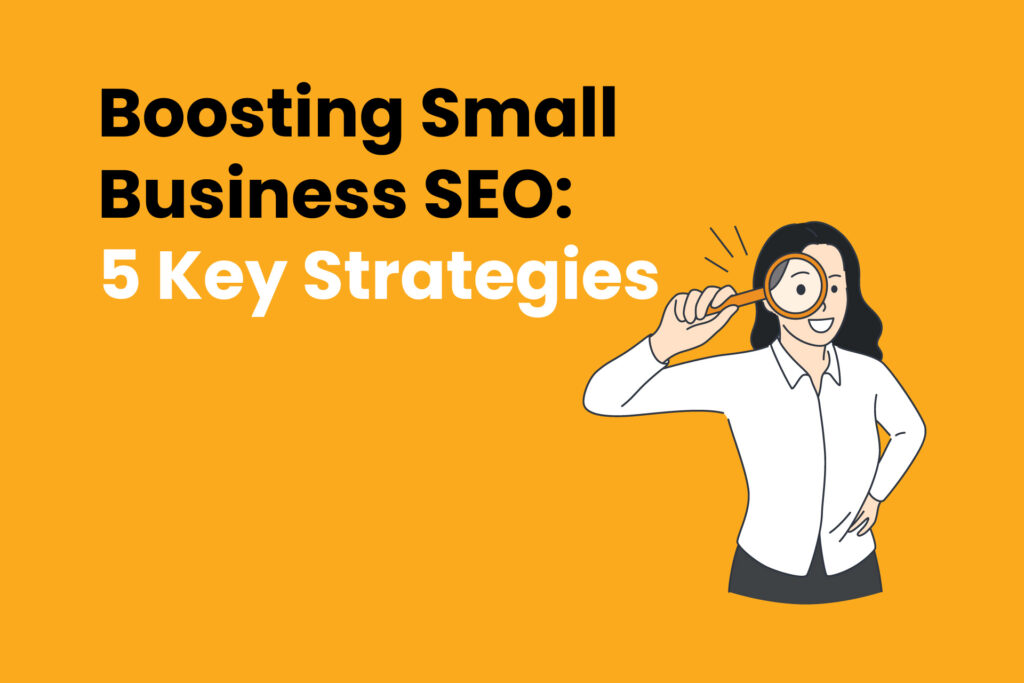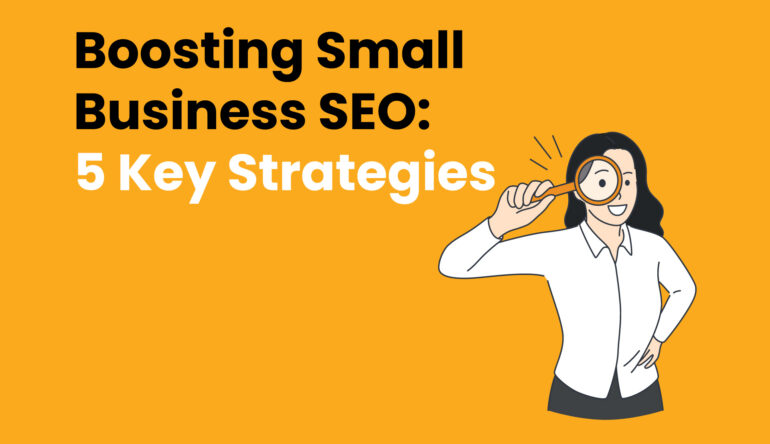In the competitive world of business, small enterprises often find themselves facing the daunting task of competing with larger, more established companies.
With limited resources and a small team, diving into the complexities of SEO might seem like an overwhelming challenge.
But fear not!
This blog post will guide you through the essential strategies to improve your small business’s SEO.

1. Harness the Power of Google My Business
You’ve probably heard of Google My Business (GMB) before, but its importance cannot be overstated.
This free service offered by Google is a game-changer for businesses, whether big or small. It empowers you to take control of your online presence and foster business growth.

Here’s why having a GMB listing is crucial for small business SEO:
- Comprehensive Information: GMB allows you to provide essential information like photos, contact details, business hours, website links, and customer reviews. Keeping this information up-to-date showcases professionalism and care for your online presence.
- Positive Reviews: Positive reviews not only inspire trust but also attract potential customers. Encourage satisfied clients to leave reviews, as they can be a valuable source of feedback.
- Local SEO: GMB is especially effective for local SEO. When people search for businesses in their vicinity, a well-maintained GMB listing can significantly improve your visibility.
2. Quality Content is King
In the digital age, having a blog is more than just a trend; it’s a strategic move.
Content is at the heart of SEO, as search engine bots crawl through it during indexing. Content encompasses not only text but also images, videos, slides, audio, and more.

To attract visitors to your blog and enhance SEO, remember these key points:
- Relevance: Your content must be relevant, helpful, and, most importantly, interesting. Understand your target audience and create content that resonates with their interests and needs.
- Leverage Trends: Stay updated with trending topics in your niche. For instance, if you run a small bakery, sharing cooking and baking-related content on social media can drive traffic and improve SEO.
- Originality: Stand out from the competition by offering unique and original content that sets your small business apart.
3. Master the Technical Aspects of SEO

Technical SEO is the backbone of your website’s performance on search engines. Here are some technical factors to consider:
- Optimize URLs and Domain: Keep URLs short, and descriptive, and include keywords (but not excessively).
- HTML Titles and Tags: Craft longer and more descriptive HTML titles. Aim for 55-60 characters. The meta description should be informative and contain relevant keywords.
- Header Tags: Use header tags to organize your content for better readability. Most readers skim content, so headers help them quickly grasp your content’s essence.
- Image Alt Tags: Describe images using alt tags. Be descriptive but avoid keyword stuffing. This helps search engines understand your visuals.
- Website Structure: Optimize your website’s structure for easy navigation and fast loading. Plan the structure, categorize pages, use HTML and CSS for navigation, and create a sitemap.
4. Build Quality Backlinks
Backlinks are vital for SEO. They signify credibility to search engines and readers.

To earn backlinks:
- Create High-Quality Content: Produce content that other websites in your niche would want to feature.
- Cooperate with Small Businesses: Partner with other small businesses for mutual backlinking, supporting each other’s online presence.
5. Embrace Local SEO
Local SEO is especially crucial for small businesses. Most businesses start locally and grow from there.

To enhance local SEO:
- Fully Optimize GMB: Make the most of Google My Business by including all relevant information, keywords, and images.
- Keyword Integration: Use keywords strategically in your content, especially location-specific ones.
- Quality Backlinks: Local backlinks from reputable sources can boost your local SEO.
- Optimized Website: Ensure your website is responsive, fast, and mobile-friendly.
Conclusion
While running a small business keeps you busy, learning and implementing SEO strategies is a worthwhile investment.
Claim your Google My Business listing, create high-quality and shareable content, optimize your website technically, earn quality backlinks, and prioritize local SEO.
These steps can significantly boost your small business’s online presence, attract new customers, and ultimately drive sales.
We wish you the best of luck with your small business SEO journey. Thank you for reading!
Want more tips?





